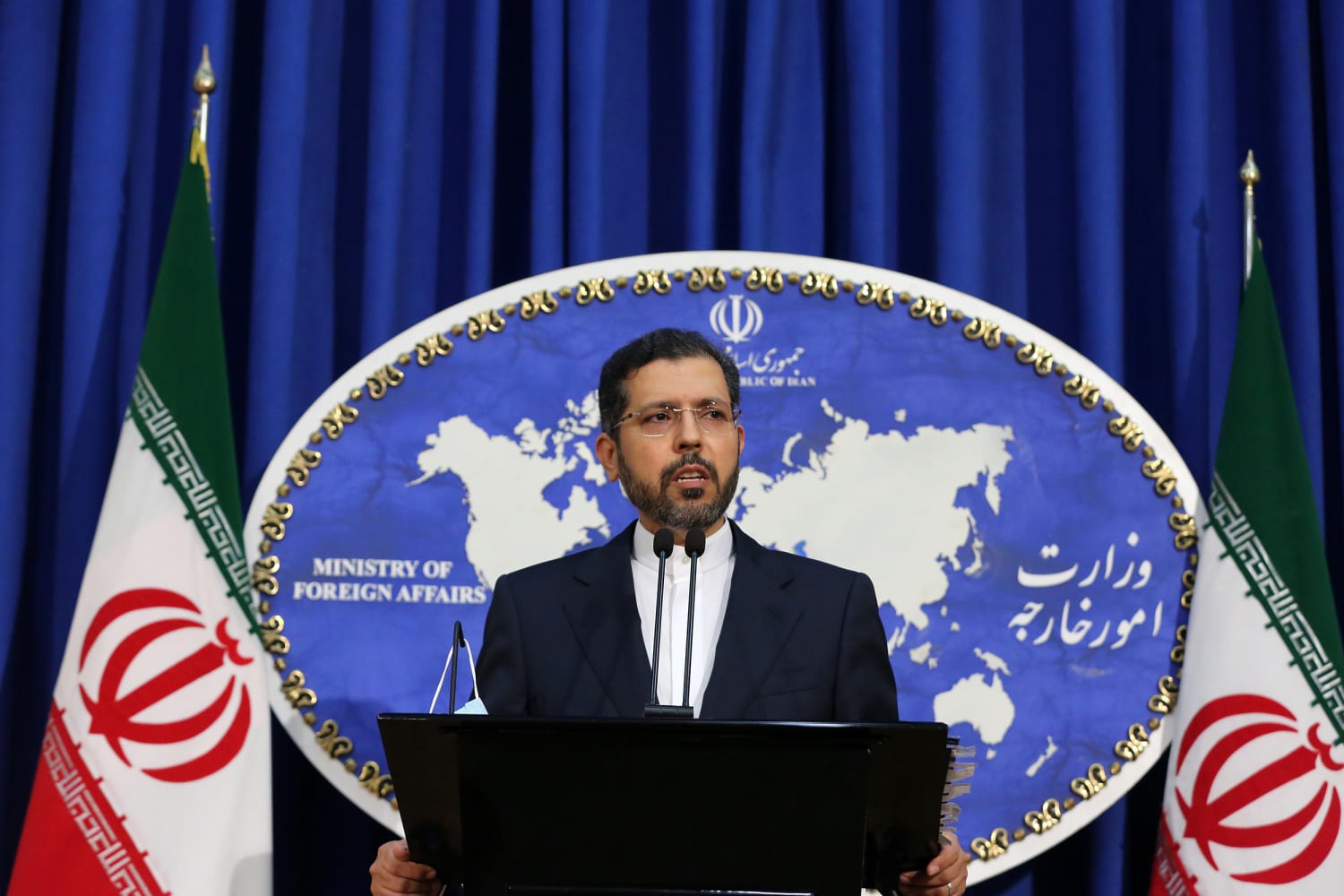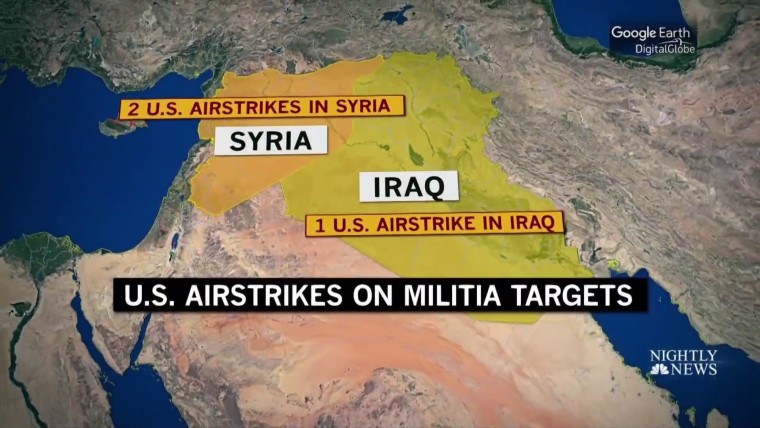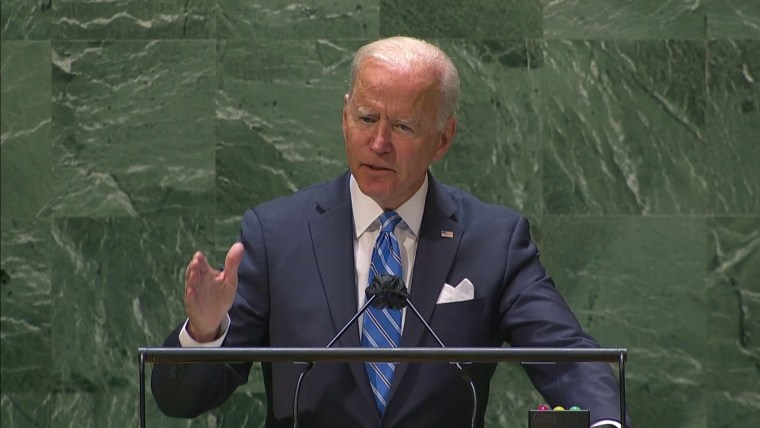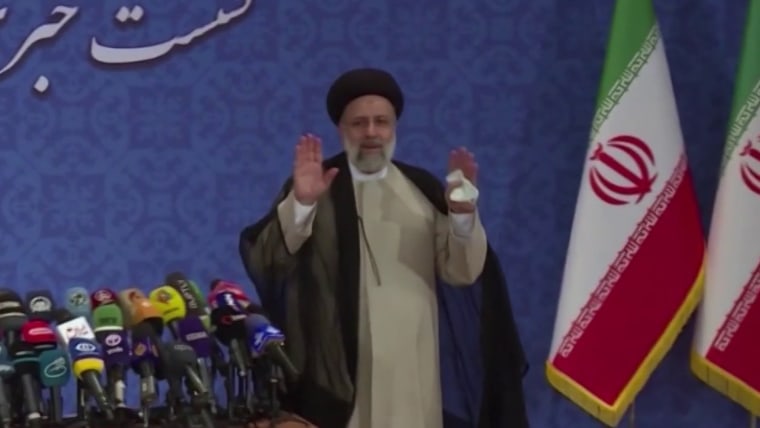WASHINGTON — Iran said Tuesday it expects international talks to resume in “the next few weeks” on reviving the 2015 nuclear deal, but U.S. officials are bracing for what appears to be a tougher negotiating stance from Tehran’s new hard-line president.
Nuclear negotiations between Iran and world powers in Vienna have been halted since June, when Iran held a presidential election, and the new administration in Tehran has yet to commit to a date to reopen the stalled discussions.
“Every meeting requires prior coordination and the preparation of an agenda. As previously emphasized, the Vienna talks will resume soon and over the next few weeks,” Iranian Foreign Ministry spokesperson Saeed Khatibzadeh said, the Iranian news agency IRNA reported.
Khatibzadeh spoke as Iran’s new foreign minister, Hossein Amirabdollahian, was in New York for the annual U.N. General Assembly, where he was expected to discuss reviving the nuclear deal with other governments.
While France, the U.K., Germany and the European Union are all expected to meet with Iranian officials this week, the U.S. and Iran have no plans to hold direct talks in New York. Iran has refused to meet with U.S. negotiators in the nuclear talks; Washington and Tehran must pass messages through European intermediaries, instead.
Since Iranian President Ebrahim Raisi, a hard-line cleric and former head of the country’s judiciary, was elected in June, U.S. and European governments have grown increasingly concerned about the prospects to restore the 2015 nuclear deal.
Before Raisi’s election, U.S. and Iranian negotiators appeared close to clinching a deal after six rounds of indirect talks. The two sides had outlined an accord in which both governments returned to the 2015 nuclear agreement, known as the Joint Comprehensive Plan for Action, which the Trump administration abandoned.
Iranian officials at the time said they had briefed the incoming government about the talks and reassured foreign diplomats that the negotiations would restart in a matter of weeks, said a senior Biden administration official with knowledge of the discussions. But the new team in Tehran declined to commit to a time to resume the discussions.
It remains unclear what Raisi’s new negotiating team will demand if the talks resume, to what degree it will reject what was previously agreed upon and even whether it views the accord as in its country’s interest, the senior official said.
“We’ll see, but if you read what they say publicly, what the press says, there’s every reason to expect that this team is not going to accept the framework, the outlines of the deal that we were negotiating before June 20,” said the U.S. official, who was not authorized to speak on the record.
“That’s why we’re quite concerned that they intend to come back with something quite different,” the official said.
Iranian leaders have been locked in an internal debate about the value of the 2015 deal, with some elements arguing that the country can endure sanctions without having to compromise with Western governments, the administration official said.
Some voices in the regime “seem to believe they withstood the worst, they can do more,” the official said. “And, of course, they did withstand Covid plus ‘maximum pressure.’ So how much worse could it get?”
The 2015 deal, also signed by the U.K., China, France, Germany and Russia, limited Iran’s nuclear program in return for easing U.S. economic sanctions. In 2018, President Donald Trump withdrew the U.S. from the agreement, reimposed sanctions on Iran and introduced more sanctions as part of what he said was a “maximum pressure” campaign.
In response, Iran has breached the provisions of the deal, blowing past restrictions on uranium enrichment, using more advanced centrifuges and restricting access to the U.N. atomic watchdog agency.
In a speech to the U.N. General Assembly on Tuesday, President Joe Biden restated his position that the U.S. was ready to return to the 2015 deal if Iran once again complied with its terms.
“We’re prepared to return to full compliance if Iran does the same,” Biden said. He added that the U.S. remains committed “to preventing Iran from gaining a nuclear weapon.”
Raisi, Iran’s new president, told the General Assembly that the U.S. had failed to live up its commitments under the 2015 accord and that Tehran was merely seeking what had been promised in the agreement.
“We want nothing more than what is rightfully ours. We demand the implementation of international rules. All parties must stay true to the nuclear deal,” Raisi said in a recorded speech by video.
Iran lived up to its end of the agreement, but the U.S. “has not yet discharged its obligation, which is lifting sanctions,” Raisi said. “It has encroached upon the agreement, withdrawn from it and levied even more sanctions on Iranian people.”
Raisi cited the Jan. 6 storming of the U.S. Capitol by a pro-Trump mob and the chaotic U.S. withdrawal from Afghanistan, saying the U.S.’s “hegenomic system has no credibility, either inside or outside the country.”
Prospects for future nuclear talks were nearly derailed until Iran reached a compromise with the U.N. atomic watchdog last week over the maintenance of cameras and other monitoring equipment used to track Iran’s nuclear activity. Iran agreed to permit the International Atomic Energy Agency, or IAEA, to change the memory cards and batteries in cameras at various nuclear facilities in Iran. The monitoring regime was introduced as part of the 2015 nuclear deal.
The senior administration official said the U.S. remains concerned about the level of Iran’s cooperation with the IAEA.The administration official also said the U.S. believes the benefits of reviving the deal could fade if too much time passes. As negotiations drag on, Iran will continue to gain technical expertise and shrink the “breakout” time needed to produce enough enriched uranium to build a single nuclear bomb, the official said.
The breakout time was estimated at one year when the nuclear agreement was in effect, but it is now likely to be only a few months, the official said. “It’s short. It’s too short for comfort,” the official said.
The Biden administration was not ready to wait indefinitely for negotiations to restore the deal, the official said, echoing previous statements by government officials.
“If we conclude that Iran is using the talks as a cover to continue to build a nuclear program without the genuine intent of returning to the deal,” then the U.S. would abandon the talks, the official said.
Even if the negotiations in Vienna resume, the talks between Iran and the U.S. would remain indirect, conducted via intermediaries, resulting in a painstakingly slow process, the senior official said.
The U.S. will discuss how to proceed with Iran in talks with European allies and other world powers in New York on Wednesday. Secretary of State Antony Blinken is due to meet with his counterparts from the U.K., France and Germany. The meeting on the sidelines of the General Assembly will be the first public interaction between the U.S. and France since a diplomatic row erupted last week over a security pact among the U.S., the U.K. and Australia.
Later Wednesday, Iran will be on the agenda in a meeting of the permanent members of the U.N. Security Council — the U.S., France, the U.K. , Russia and China.
Source: | This article originally belongs to Nbcnews.com













